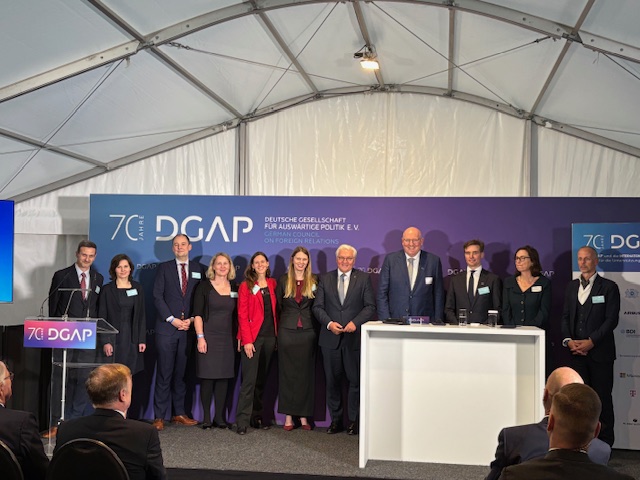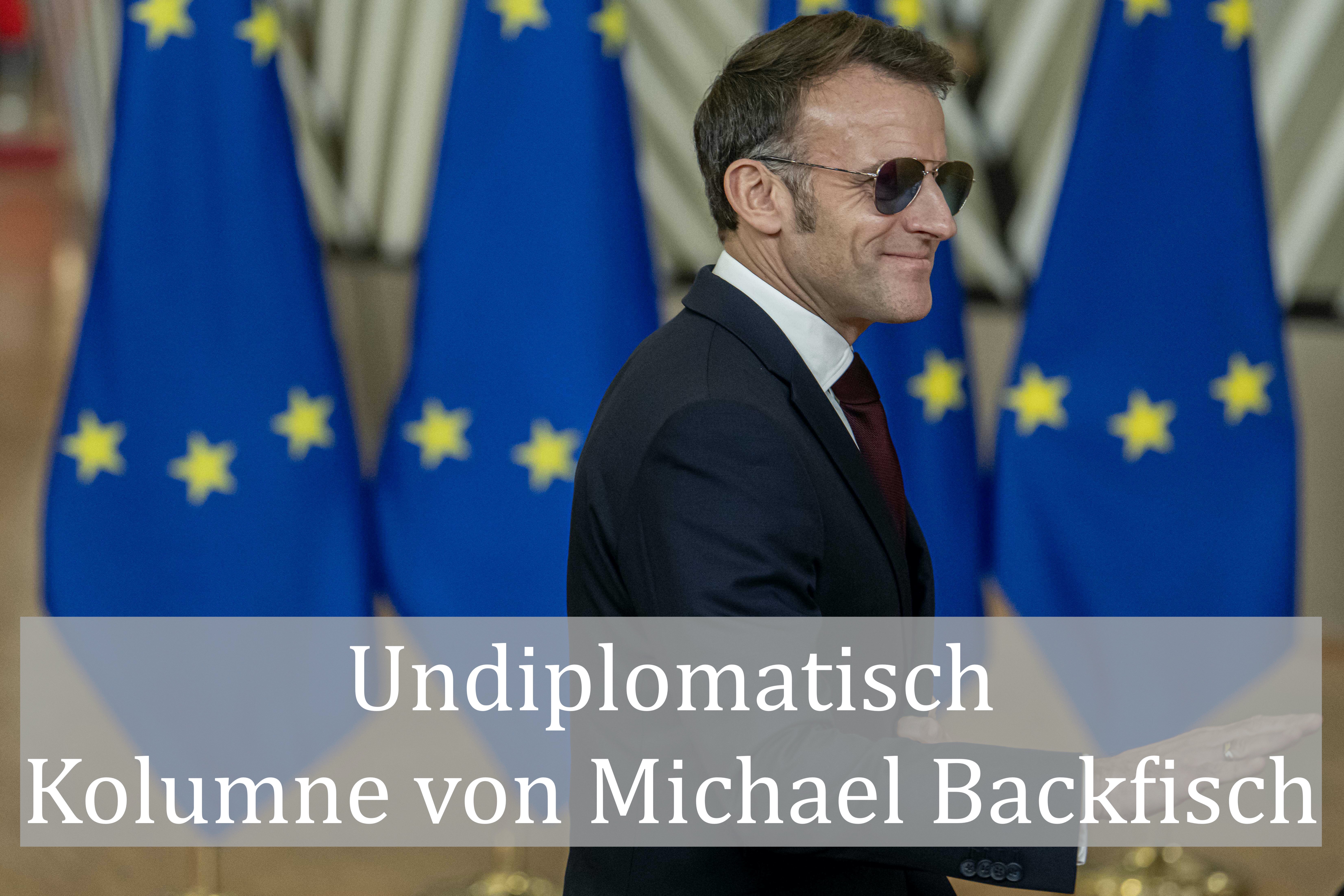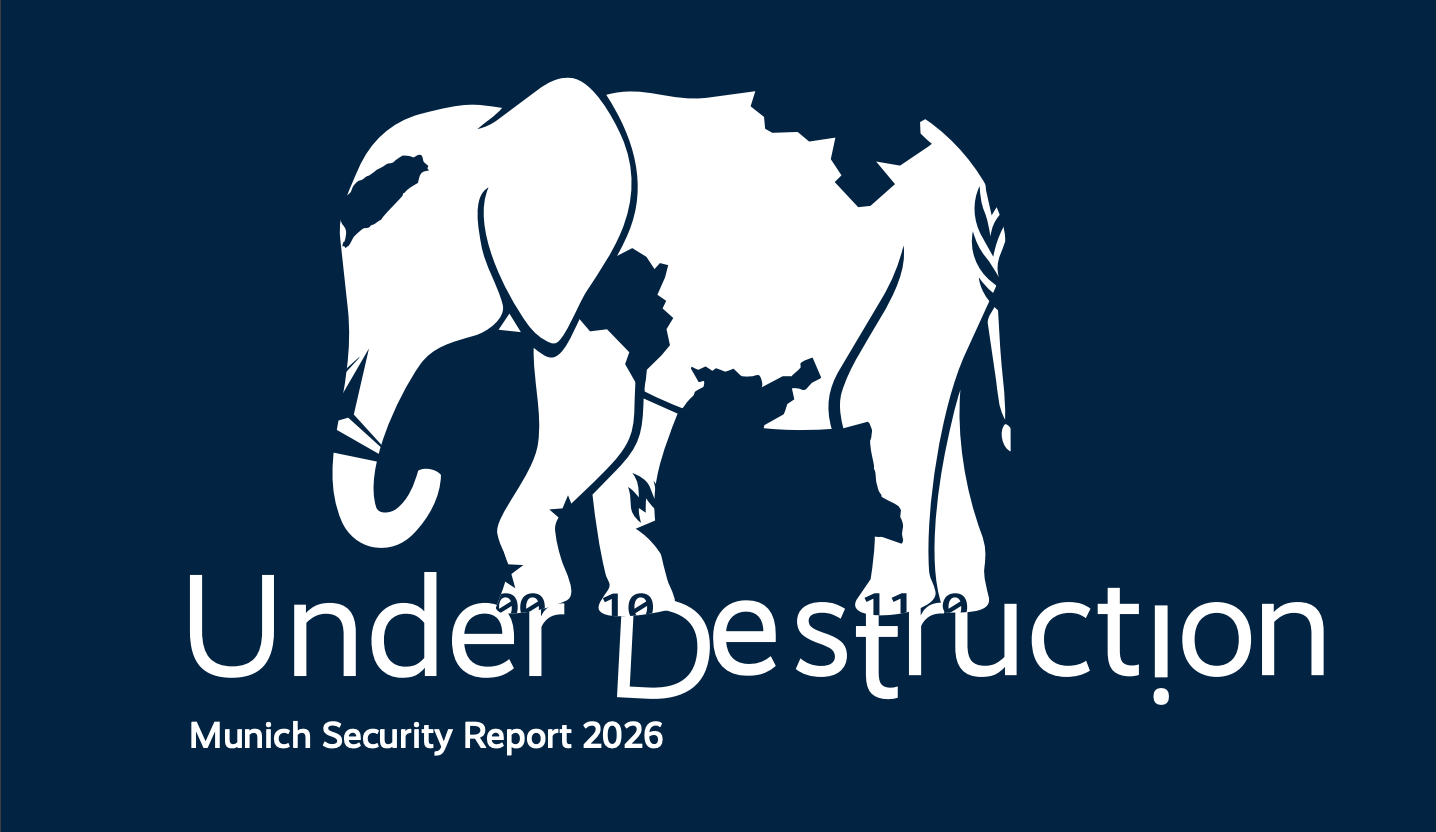diplo.news
Steinmeier: Diplomacy and security must be combined much more closely

Federal President Frank-Walter Steinmeier has called for more diplomacy to solve the current multiple crises in the world. He said that Europe must become stronger militarily and invest more in defense in order to be taken seriously. “However, military strength alone will not be able to replace traditional instruments of foreign policy,” Steinmeier said on Wednesday at a ceremony to mark the 70th anniversary of the German Council on Foreign Relations (DGAP) in Berlin. The think tank, founded in 1955 following the example of the British Chatham House and the US Council on Foreign Relations in the still young Federal Republic, also advises the federal government and is now considered one of the leading think tanks in Germany.
“It would be a mistake to believe,” says Steinmeiner, “that traditional foreign policy is the dreamy little sister of its stronger brother, security policy. Anyone who thinks about foreign policy without security policy in these times of dynamic power shifts and serious threats is bound to fail. But conversely, anyone who believes that the classic craft of foreign policy, diplomacy, is dispensable or has even become obsolete will fail just as badly. We must think of the two together, and much more strongly than before." This is necessary not only because of the changed security situation, but also because of a public sphere in which black-and-white thinking increasingly dominates, differentiated knowledge and an experience-based course are eroding, and the foreign policy debate is also becoming increasingly narrow.
The situation is also becoming increasingly difficult due to the influence of social media. Images are often more important than content, and it is increasingly difficult to distinguish truth from lies. Nuances, differentiation and historical awareness are neither politically nor medially fashionable.“The often quiet voice of diplomacy doesn't have it easy against the roar of simplifiers.” Diplomacy must explore ways of communication and requires time, vision and resilience. Right now, an active foreign policy and bold and creative diplomacy are needed. The current conflict in Ukraine, the destruction of the European peace order, crises in the Near and Middle East, China's drive to fill the gaps in the international power architecture and the threat to traditional US democracy are dividing the international community. Solving these crises actually requires more cooperation, even in functioning multinational institutions, reliability and persistence. Instead, international order, diplomacy, binding rules and understanding came under increasing pressure.
The Social Democrat called the DGAP an indispensable institution of German foreign policy and a “strategic compass that helps to stay on course.” He said it was a space for reflection beyond all party political considerations. The celebration was attended by ambassadors, members of parliament and company representatives, among others. The think tank's long-standing director, Karl Kaiser, travelled from the United States especially for the occasion. He teaches as an associate professor at Harvard Kennedy School and is a fellow in a project on Europe and transatlantic relations. The 90-year-old was considered a visionary and a great networker who shaped the DGAP like no other. A new centre named after him will focus more on German and European issues of the future.
The head of the Federation of German Industries, Peter Leibinger, used the occasion of the anniversary celebrations to draw attention to what he considers to be a dramatic economic situation. He believes that the global economy is undergoing a systemic change, with stability giving way to volatility, order and rules giving way to mercantilism, and politics that were often based on values giving way to pure power politics. An invisible restructuring of value chains has taken place. “We (in Germany) are under immediate threat. We are in the midst of decline.” In another five years, the German export-oriented economic model will come to an end if this development is not counteracted. Leibinger called for taboos to be broken, a selective industrial policy, and more strategic and long-term thinking in politics, both in Brussels and Berlin. Overnight, the European Union has become the only legally secure economic area, ‘but in its current form, the EU will not be able to seize this opportunity.’ gd




